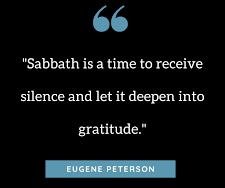Suppose you catch your 9 year old breaking one of the family rules...maybe it's hitting their little brother, or stealing their sister's Halloween candy, or drawing on the wall with a marker. When caught, they begin to deflect from their behavior with cries of "it wasn't my fault" or "little brother didn't get in trouble when HE did it" or "why am I the only one you punish?". In our house, those arguments don't go very far. It may be true that little brother did the same thing, or that another kid ALSO was at fault, but the in THIS moment, for THIS conversation, we're talking about YOUR behavior.
For quite some time, I've believed that one of the most important lessons we can teach our kids is how to apologize. We value that because it's an important biblical practice. Being able to acknowledge and confess our sin and ask forgiveness is at the center of our faith. If I can't apologize for being a jerk to my husband, how in the world can I confess my sin of disobedience towards God? And if I can't admit I've done something wrong, how will I ever get to the place of being GRATEFUL for the price Jesus had to pay for my sin and disobedience? So the "I'm sorry, but YOU..." or "I'm sorry if YOU felt offended when I said that" don't pass the test in our house. What I'm looking for as a parent is a clear "this behavior was wrong. I am guilty. I am sorry." No "buts", no addendums, no finger pointing. This is what it means to be a grown up. To own our junk. To have integrity.
I think that's one of the reasons this season of political strife has been so frustrating for me. As someone who doesn't identify with either political party but is an interested political observer, I long for honest, nuanced discussions about what's going on in the world around us. To be able to have a rational discussion about whether the particular statement or action or vote of a politician or police officer or activist was true or right or helpful. Those conversations can't happen without people who are able to say, when appropriate, "I was wrong". "That was a bad decision". "I'm sorry for the thing I said." "They were actually right about that".
Until that happens in our discourse, I'm not sure what hope there is for the United States.



No comments:
Post a Comment